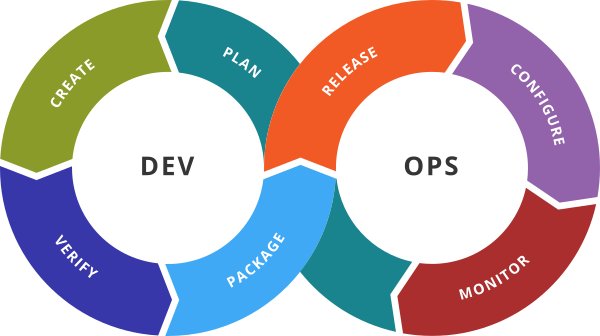What is DevOps? or: Why Another DevOps Certification?

The Linux Professional Institute (“LPI”) recently announced the objectives for a new certification – the LPIC-OT DevOps Tools Engineer – which tests the skills and understanding of the open source tools commonly used by organisations trying to create a DevOps environment.
If you want a brief introduction into DevOps, Wikipedia has a good description of the subject:
“a term used to refer to a set of practices that emphasize the collaboration and communication of both software developers and information technology (IT) professionals while automating the process of software delivery and infrastructure changes”
It is the simplicity of this description that belies the complexity that exists in both the collaboration methods and the full technology stack required to implement the desired organizational changes.
While researching the need for and potential content of a DevOps certification, LPI quickly found that while many organizations were covering the collaboration side of DevOps – such as the Project Management Institute with the PMI-ACP credential – few were offering a complementary certification that covered the technology required to support it.
Considering that most, if not all, of the most popular DevOps tools are open source, it was a natural decision for us to create a certification that tests the skills required to use these technologies effectively.
The image below is a good representation of the cyclical nature of DevOps, which involves taking new code, using it in production and providing feedback in order to aid further improvements and feature development:

The basic building blocks of a DevOps toolchain are covered in detail by LPI’s new DevOps tools certification – with two exceptions: the programming language technologies and the individual service configuration topics.
These two areas deserve their own attention and, possibly, their own certifications. Although, it should be noted that LPI does already cover the configuration and management of commonly deployed network services in our LPIC-2 certification.
You can read more about this here. There are many more services, including custom developed ones, which are also beyond the scope of the new certification.
However, what exactly should be covered in a programming language certification track remains a contentious topic.
As an aside, if you are interested in helping us determine what we cover in future certifications, feel free to join the LPI exam development mailing list by signing up here. We’d love for you to get involved.
The creation of a DevOps certification was also a little contentious among our development groups – partially because, at LPI, we tend to cover field-deployed topics.
On closer inspection by everyone involved it became clear that best practices and the use of reliable open source tools within DevOps were becoming ubiquitous. Certification of these skills became an important next step for LPI and our community.
This dominance of open source DevOps tools also demonstrates that open source software continues to lead and enable innovation. As IT professionals who relish using open source, this gives us every reason to look forward to more opportunities for participating in interesting projects.
It also means you will increasingly have the ability to better support the tools that you create. As an LPI certification holder myself, I’ll be getting my certification as soon as I can.
Interested to learn more about our DevOps certification development? Visit http://www.lpi.org/devops to find out more or contact a member of the LPI team.
1.https://en.wikipedia.org/wiki/File:Devops.svg
2. https://upload.wikimedia.org/wikipedia/commons/0/05/Devops-toolchain.svg
